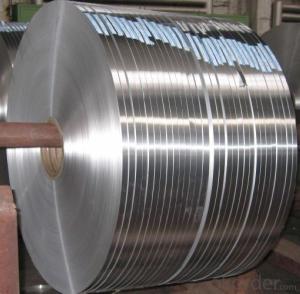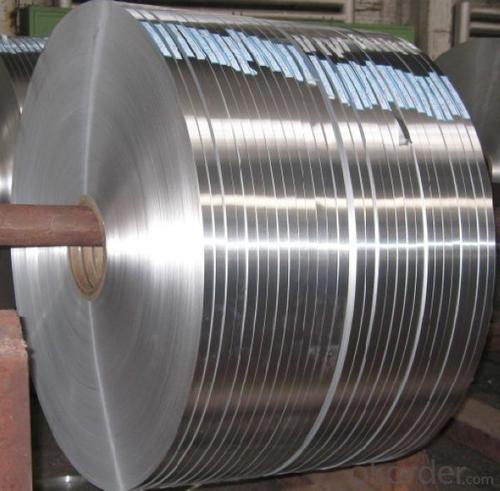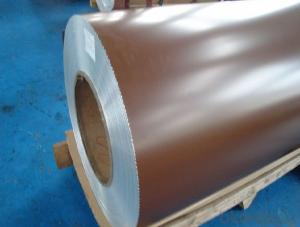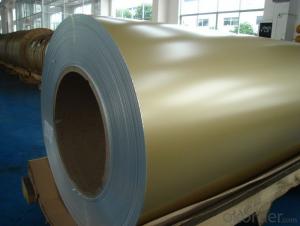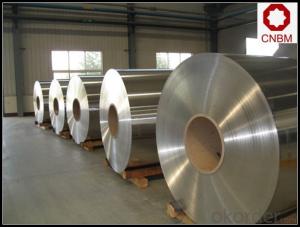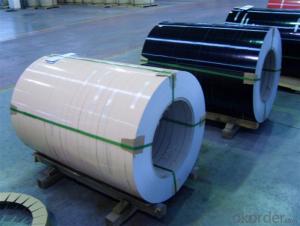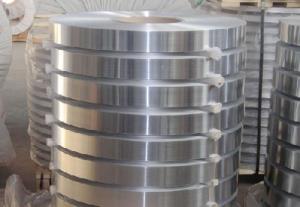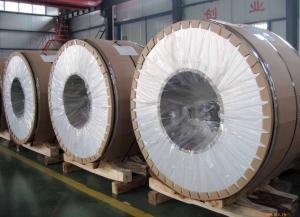Rustic Red Aluminum Coil - 0.19mm x 94mm Lacquered Aluminium Strip for Vial Seals
- Loading Port:
- Shanghai
- Payment Terms:
- TT OR LC
- Min Order Qty:
- 2.5
- Supply Capability:
- 5000 m.t./month
OKorder Service Pledge
OKorder Financial Service
You Might Also Like
Specification
Aluminium Strip 0.19mm X 94mm Lacquered for Vial Seals
l Product Specification
1.Alloy 8011 temper h14 thickness 0.17-0.24mm
2.Width 60-800mm id 76mm 152mm
3.Coating type :
a. One side golden n other side protective lacquered
b. both sides clear lacquered
4.test item: autoclave test . Hgcl2 test
5.Tensile strength : 125-155mpa , elongation 2.5-3.5% , earring 2%
6.Packing: wooden boxes . 50kg or 100kg
7.Application : vial seals, pharmaceutical caps
8. we can gurantee quality and very good service
l Packaging & Delivery
Packaging detail: Seaworthy Export Standard Wooden Pallet and with damp proof film as first layer, Kraft paper as second layer, Cardboard card as third layer Criss-cross steel strip to fix outside
Delivery detail: About 15 days
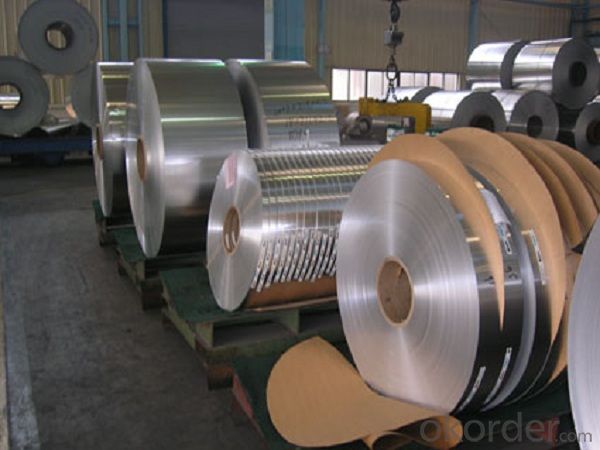
l Company Profile
CNBM International Corporation, China National Building Materials (Group) Corporation, is one of the largest companies in China building material & equipment industry, with 42,800 employees and sales in 2005 of US Dollar 4.395 billion. In 2006, China National Building Material Company Limited was listed on Hong Kong Stock Market with the stock code as 3323. |
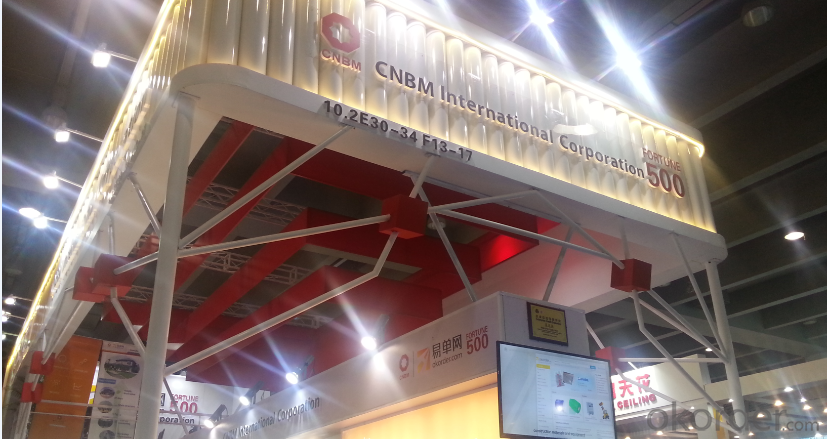
l CNBM World Wide
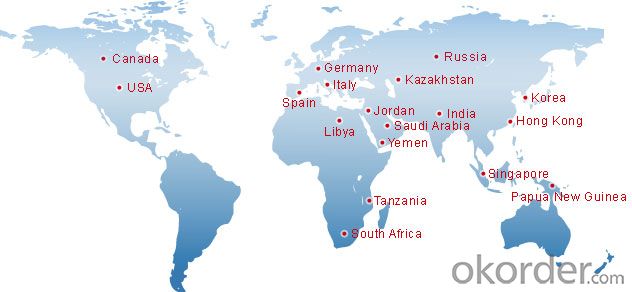
l Products Images
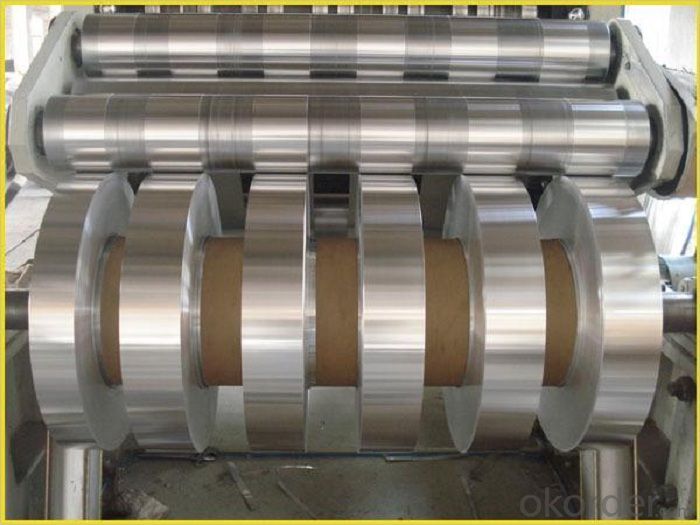
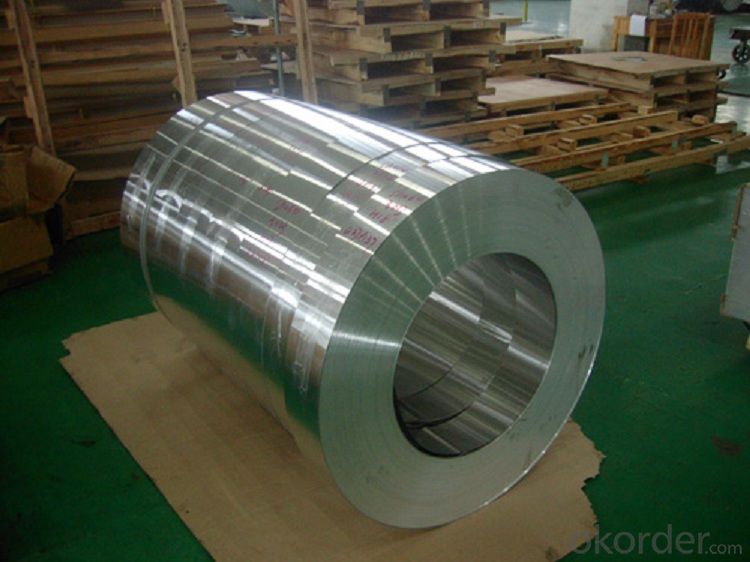
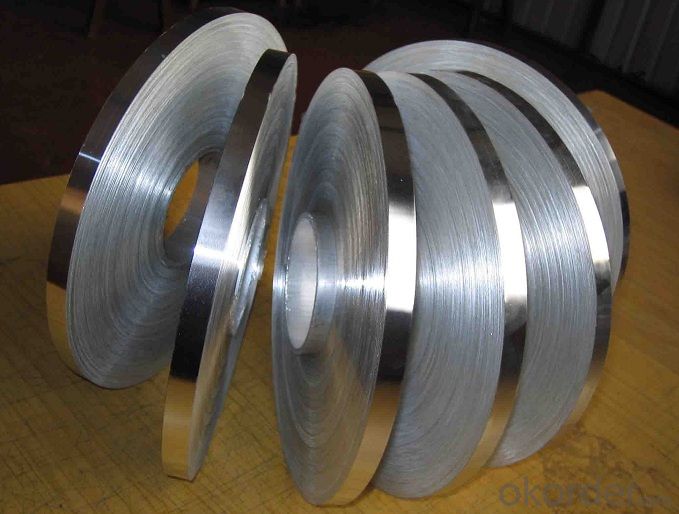
l Certificates
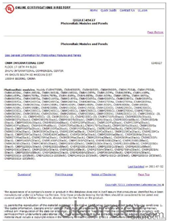
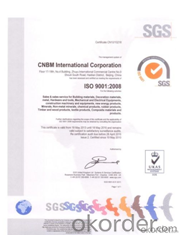
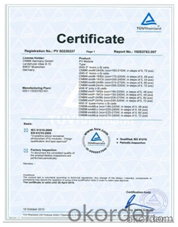
l FAQ
Q: Do you provide free samples?
A: Yes, free samples will be sent to you on freight at destination.
Q: Can I get your latest products catalogue?
A: Yes, it will be sent to you in no time.
Q: What is the MOQ?
A: 2.5 tons
Q: What are your payment terms?
A: We accept L/C, T/T
- Q: Related technical standards of aluminium coil
- GB/T 10456-1989 anodized aluminium foilGB/T 9734-1988 chemical reagent -- General method for the determination of aluminiumGeneral specification for GB/T 9538-1988 strip cable connectorsComplexometric titration fluoride release method for the determination of three aluminium oxide content in GB/T 9489.4-1988 corundum powder twoGB/T 9438-1999 aluminium alloy castingsGB/T 8733-2000 cast aluminium alloy ingotsGB/T 6454-1986 getter aluminium zirconium alloy rings and sheets
- Q: Are there any limitations to the coil weight of aluminum coils?
- Yes, there are limitations to the coil weight of aluminum coils. The weight of aluminum coils is typically limited by factors such as the capacity of the equipment used for transportation or processing, the strength and stability of the packaging materials, and the safety regulations imposed by the industry. Exceeding these limitations can lead to difficulties in handling, increased risk of damage or accidents, and may impact the overall efficiency of the manufacturing or distribution process.
- Q: Are there any specific guidelines for the handling of aluminum coils?
- Yes, there are specific guidelines for the handling of aluminum coils. Here are some key points to consider: 1. Proper lifting techniques: When handling aluminum coils, it is important to use appropriate lifting equipment such as cranes or forklifts. These tools should have the capacity to handle the weight of the coils to prevent accidents or damage. 2. Protective gear: Workers should wear personal protective equipment (PPE) such as gloves and safety goggles to protect themselves from sharp edges or potential injuries during handling. 3. Secure packaging: Aluminum coils should be stored or transported in secure packaging to prevent damage. This can include using suitable pallets, straps, or protective covers to ensure the coils are held in place and protected from external factors like moisture or impact. 4. Proper stacking: When storing or transporting aluminum coils, it is important to stack them in a way that ensures stability and prevents them from falling or causing accidents. Coils should be stacked evenly and securely, with adequate support and space between each stack to avoid deformation or damage. 5. Avoid contact with corrosive materials: Aluminum coils should not come into contact with corrosive materials such as acids or alkalis, as they can cause damage or corrosion to the metal. It is important to store aluminum coils in a clean and dry environment to preserve their quality. 6. Handling with care: Aluminum coils are susceptible to scratches, dents, and other damage, so they should be handled with care to avoid these issues. Avoid dragging or sliding the coils during handling and ensure that they are placed gently to prevent any potential damage. 7. Training and supervision: Workers involved in the handling of aluminum coils should be adequately trained and supervised to ensure they are following the specific guidelines and safety procedures. Regular training sessions can help refresh their knowledge and reinforce safe handling practices. Following these guidelines will help ensure the proper handling of aluminum coils, reducing the risk of accidents, damage, or loss of quality.
- Q: Can a digital caliper be utilized to accurately measure the diameter of an aluminum coil?
- <p>Yes, you can use a digital caliper to measure the diameter of an aluminum coil accurately. Digital calipers are precise measuring tools, often accurate to 0.001 inches or 0.02mm, which is suitable for measuring the diameter of various objects, including aluminum coils. Ensure the caliper is zeroed before use and that the coil's surface is clean and flat where the measurement is taken to get accurate readings.</p>
- Q: What is the role of aluminum coils in HVAC systems?
- The role of aluminum coils in HVAC systems is to transfer heat between the indoor and outdoor units. These coils contain refrigerant that absorbs heat from the indoor air, which is then transferred to the outdoor coil to be released. This process allows for efficient cooling or heating of the indoor space.
- Q: What are the pros and cons of utilizing aluminum coils in storage applications?
- <p>Aluminum coils offer several advantages for storage, including high durability, corrosion resistance, and lightweight properties which make them easy to handle. They are also recyclable and have good thermal conductivity, which can be beneficial in temperature-controlled environments. However, there are downsides such as higher initial costs compared to some other materials and potential for denting or damage if not properly handled. Additionally, while aluminum is generally non-magnetic, it can be attracted to strong magnets, which might be a consideration in certain storage scenarios.</p>
- Q: How much is aluminum-plastic panel with the 0.155mm thick aluminum per ton?
- The price is around 17000 yuan per ton, but you need to take the surface effect into account
- Q: Can aluminum coils be used in solar panel systems?
- Solar panel systems can indeed utilize aluminum coils. Aluminum is commonly selected as the material for frames and supports in solar panels because of its favorable combination of lightness and strength. Its resistance to corrosion, durability, and impressive thermal conductivity make it an ideal choice for enduring severe weather conditions and efficiently dispersing heat generated by the panels. Furthermore, aluminum is highly recyclable, which aligns perfectly with the environmentally conscious nature of solar energy systems. In conclusion, incorporating aluminum coils into solar panel systems enhances their efficiency, lifespan, and eco-friendliness.
- Q: Are aluminum coils suitable for beverage can manufacturing?
- Aluminum coils are indeed appropriate for the production of beverage cans. Aluminum is the favored material for this purpose because of its numerous beneficial characteristics. To begin with, aluminum is lightweight, enabling easy transportation and handling. This is especially crucial in the beverage industry, where a substantial number of cans are manufactured and distributed. Furthermore, aluminum possesses high malleability, allowing it to be shaped into the desired form without compromising its structural integrity. This quality makes it perfect for the manufacturing of cans, as it can be effortlessly molded into the cylindrical shape required and withstand the pressure exerted by carbonated beverages. Moreover, aluminum is non-toxic, ensuring that it does not contaminate the beverages stored within the cans. It also acts as a protective barrier against light, oxygen, and moisture, effectively preserving the flavor and quality of the beverages. Additionally, aluminum is recyclable, thus making it an environmentally friendly option for can production. The recycling process for aluminum consumes significantly less energy than the production of new aluminum, rendering it a sustainable material choice. In summary, the appropriateness of aluminum coils for beverage can manufacturing is evident due to their lightweight nature, malleability, non-toxicity, preservation properties, and recyclability.
- Q: How can aluminium ingots be processed into aluminium coils (aluminium sheets)?
- This depends on what kind of ingot, and if it is small, it needs to be melted into a furnace, cast into a large plate, and then rolled on a mill
Send your message to us
Rustic Red Aluminum Coil - 0.19mm x 94mm Lacquered Aluminium Strip for Vial Seals
- Loading Port:
- Shanghai
- Payment Terms:
- TT OR LC
- Min Order Qty:
- 2.5
- Supply Capability:
- 5000 m.t./month
OKorder Service Pledge
OKorder Financial Service
Similar products
Hot products
Hot Searches
Related keywords
